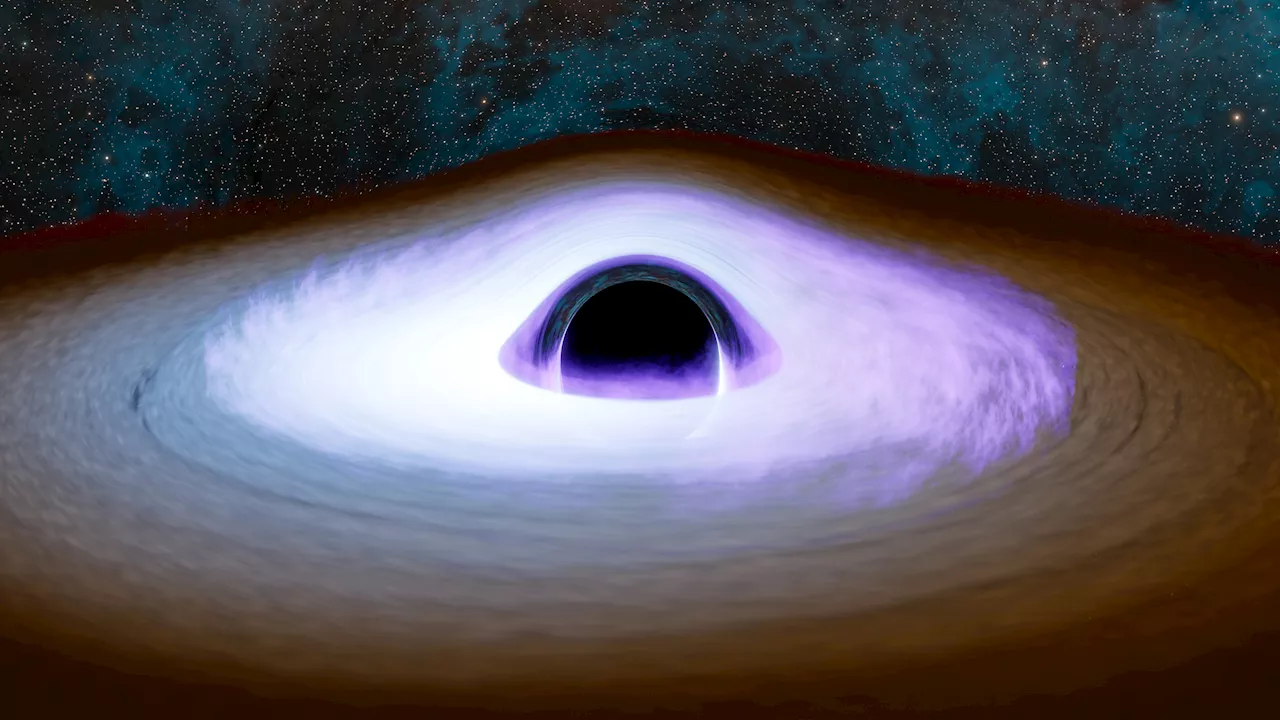Researchers have strengthened the case that matter becomes dark energy when massive stars collapse and become black holes.
Almost 14 billion years ago, at the very beginning of the Big Bang , a mysterious energy drove an exponential expansion of the infant universe and produced all known matter, according to the prevailing inflationary universe theory.
"If black holes contain dark energy, they can couple to and grow with the expanding universe, causing its growth to accelerate" said Kevin Croker, lead author of the team's new study and an assistant research scientist at Arizona State University."We can't get the details of how this is happening, but we can see evidence that it is happening."
"The two phenomena were consistent with each other -- as new black holes were made in the deaths of massive stars, the amount of dark energy in the universe increased in the right way," said Duncan Farrah, associate professor of physics at the University of Hawai'i and co-author of the study."This makes it more plausible that black holes are the source of dark energy."
"This occurs much later in the universe and is informed by recent measurements of black hole production and growth as observed with the Hubble and Webb space telescopes," said co-author Rogier Windhorst, an interdisciplinary scientist for the JWST and professor of earth and space exploration at Arizona State University.
Regardless of what those future observations bring, the work happening now represents a sea change in dark energy research, the team said.
Black Holes Dark Matter Astronomy Cosmology Big Bang Stars Galaxies
United States Latest News, United States Headlines
Similar News:You can also read news stories similar to this one that we have collected from other news sources.
 NASA’s IXPE Helps Researchers Determine Shape of Black Hole CoronaNew findings using data from NASA’s IXPE mission offer unprecedented insight into the shape and nature of a structure important to black holes called a corona.
NASA’s IXPE Helps Researchers Determine Shape of Black Hole CoronaNew findings using data from NASA’s IXPE mission offer unprecedented insight into the shape and nature of a structure important to black holes called a corona.
Read more »
 Influence of a black hole's spin: First evidence of precession in ultraluminous accretion disksResearchers conducted innovative simulations of spinning black holes grounded in general relativity, which clarified that the ultraluminous accretion disk (i.e., gaseous spiral surrounding a black hole) exhibits a precessional motion driven by the black hole's spin.
Influence of a black hole's spin: First evidence of precession in ultraluminous accretion disksResearchers conducted innovative simulations of spinning black holes grounded in general relativity, which clarified that the ultraluminous accretion disk (i.e., gaseous spiral surrounding a black hole) exhibits a precessional motion driven by the black hole's spin.
Read more »
 Researchers develop Janus-like metasurface technology that acts according to the direction of lightResearchers have overcome the limitations of existing metasurface technologies and successfully designed a Janus metasurface capable of perfectly controlling asymmetric light transmission.
Researchers develop Janus-like metasurface technology that acts according to the direction of lightResearchers have overcome the limitations of existing metasurface technologies and successfully designed a Janus metasurface capable of perfectly controlling asymmetric light transmission.
Read more »
 Researchers uncovered the ‘glue’ that holds memories together in our brainsNew research has finally helped us understand how the brain stores long-term memories, and it's all connected to molecular interactions.
Researchers uncovered the ‘glue’ that holds memories together in our brainsNew research has finally helped us understand how the brain stores long-term memories, and it's all connected to molecular interactions.
Read more »
 At-home brain stimulation for depression is safe and effective, according to researchersA device that delivers direct stimulation to the brain was found to be a safe and effective means of treating depression at home, according to a new study.
At-home brain stimulation for depression is safe and effective, according to researchersA device that delivers direct stimulation to the brain was found to be a safe and effective means of treating depression at home, according to a new study.
Read more »
 Russia amplified hurricane disinformation to drive Americans apart, researchers findIn July, American intelligence officials warned that 'unwitting Americans' were helping do Russia's work for it.
Russia amplified hurricane disinformation to drive Americans apart, researchers findIn July, American intelligence officials warned that 'unwitting Americans' were helping do Russia's work for it.
Read more »
